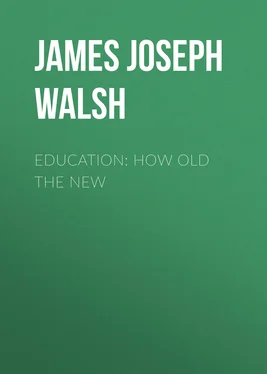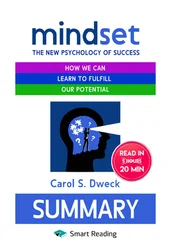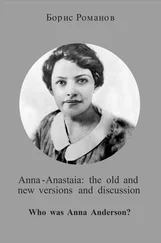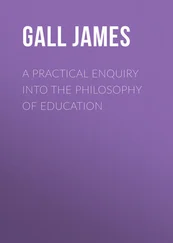James Walsh - Education - How Old The New
Здесь есть возможность читать онлайн «James Walsh - Education - How Old The New» — ознакомительный отрывок электронной книги совершенно бесплатно, а после прочтения отрывка купить полную версию. В некоторых случаях можно слушать аудио, скачать через торрент в формате fb2 и присутствует краткое содержание. Жанр: foreign_prose, foreign_edu, foreign_antique, на английском языке. Описание произведения, (предисловие) а так же отзывы посетителей доступны на портале библиотеки ЛибКат.
- Название:Education: How Old The New
- Автор:
- Жанр:
- Год:неизвестен
- ISBN:нет данных
- Рейтинг книги:3 / 5. Голосов: 1
-
Избранное:Добавить в избранное
- Отзывы:
-
Ваша оценка:
- 60
- 1
- 2
- 3
- 4
- 5
Education: How Old The New: краткое содержание, описание и аннотация
Предлагаем к чтению аннотацию, описание, краткое содержание или предисловие (зависит от того, что написал сам автор книги «Education: How Old The New»). Если вы не нашли необходимую информацию о книге — напишите в комментариях, мы постараемся отыскать её.
Education: How Old The New — читать онлайн ознакомительный отрывок
Ниже представлен текст книги, разбитый по страницам. Система сохранения места последней прочитанной страницы, позволяет с удобством читать онлайн бесплатно книгу «Education: How Old The New», без необходимости каждый раз заново искать на чём Вы остановились. Поставьте закладку, и сможете в любой момент перейти на страницу, на которой закончили чтение.
Интервал:
Закладка:
Some may be inclined to say that while the Egyptians may, as indeed we must admit they did, know many things about art and literature and practical wisdom, yet they did not have exact knowledge. Their knowledge, though large and liberal, had not become scientific. This will scarcely be maintained, however, by any one who realizes how much of applied science there was in the building of the old temples and pyramids and how much they must have developed mechanics, applied and theoretic, in order to accomplish the tasks they thus set themselves. Cantor, the German historian of mathematics, acknowledged this and paid a worthy tribute to the old Egyptians' development of mathematics, pure and applied, in discussing the expression that had been used by Democritus, the early Greek geometer, who once declared that "In the construction of plane figures with demonstrations no one has yet surpassed me, not even the rope fasteners (harpedonaptai) of Egypt." For a long time this word harpedonaptai was a mystery, but Professor Cantor cleared it up, and explaining for us the exact meaning of the compound which means literally either rope fasteners or rope stretchers, he says, "There is no doubt that the Egyptians were very careful about the exact orientations of their temples and other public buildings. Old inscriptions seem to show that only the North and South lines were drawn by actual observation of the stars. The East and West lines were drawn at right angles to the others. Now it appears from the practice of Heron of Alexandria and of the ancient Indian and probably also the Chinese geometers, that a common method of securing a right angle between two very long lines was to stretch round three pegs a rope measured in three portions which were to one another in the ratio 3:4:5. The triangle thus formed is right-angled. Further the operation of rope stretching is mentioned in Egypt, without explanation, at an extremely early time (Amenemhat I). If this be the correct explanation of it, then the Egyptians were acquainted 2,000 years B.C., with a particular case of the proposition now known as the Pythagorean theorem."
This may not seem to mean very much. Yet what it illustrates is just this. These men wanted a certain development of mathematics. They needed it for the work that they were engaged at. They set themselves to the solution of certain problems and in doing so evolved a theorem in pure mathematics and an application of it which greatly simplified construction and gave an impetus to mechanics. In so doing they anticipated the work of a long after time. This is what I would insist is always true with regard to man. When he needs some intellectual development he makes it. When he requires an application of it he succeeds in working it out. Later ages may go farther, but had he needed further developments he evidently had the power to make them and probably would have made them.
The old Greeks had a much better opportunity to study Egyptian remains than we have, and especially was this true after the foundation of Alexandria. There must have been a lively interest in things Egyptian aroused in the Greek minds by this Greek settlement in old Egypt. It is not surprising, then, to find some magnificent compliments to the old Egyptians in the mouths of some of the writers about the time of the foundation of Alexandria. Eudemus, for instance, the pupil of Aristotle, wrote the history of Geometry in which he traces its invention to the Egyptians, and states that the reason for its invention was its necessity in the remeasurement of land demanded after the removal of landmarks by the annual rise of the Nile. Always does one find this, that when there is a serious demand for an invention in theory or practice men make it. It is not a change or development in man that brings about inventions, but a change in his environment which causes new necessities to arise, and then he proceeds with an ability always the same to respond properly to those necessities.
Eudemus says: "Geometry is said by many to have been invented among the Egyptians, its origin being due to the measurement of plots of land. This was necessary there because of the rising of the Nile, which obliterated the boundaries appertaining to separate owners. Nor is it marvellous that the discovery of this and other sciences should have arisen from such an occasion, since everything which moves in development will advance from the imperfect to the perfect. From mere sense-perception to calculation, and from this to reasoning, is a natural transition."
The old Egyptians made some fine developments of arithmetic. These were afterwards lost and were reinvented probably several times. I have already quoted from Cantor the opinion that the Egyptians were familiar with the properties of the right triangle whose sides were in the ratio 3:4:5 over 4,000 years ago. In the Papyrus of Ahmes, whose contents probably come from before 2400 B.C., there are the solutions of many problems which show how far the Egyptians had gone in arithmetical calculations. For instance, there are methods of calculating the solid contents of barns. The solutions are not absolute but are very closely approximate. Ahmes has problems that were solved in connection with the pyramids, which make it very clear that the old Egyptians had more than a little knowledge of the principles of proportion, of certain geometrical figures and probably were familiar also with the simpler phases at least of trigonometry. The area of a circle is found in Ahmes by deducting from the diameter one-ninth and squaring the remainder, which gives a value for the ratio of the circumference to the diameter of a circle much more nearly correct than that used by most writers until comparatively recent times.
As a teacher of the history of medicine with certain administrative functions in a medical school, I have been very much interested in the old-time medicine and above all the details of medical education that we find among the Egyptians. Ordinarily it would be assumed that there was so little of anything like medical education that it could be scarcely worth while talking about it. On the contrary, we find so much that is being constantly added to by discoverers, that it is a never-ending source of surprise. There is a well-grounded tradition founded on inscriptions that Athothis, the son of Menes, one of the early kings, wrote a work on anatomy. This king is said to have died about 4150 B.C. There are traces of the existence of hospitals at that time in which diseases were studied and medical attendants trained. Even earlier than this there was a great physician, the first physician of whom we have record in history, whose name was I-Em-Hetep, which means "the Bringer of Peace." He had two other titles, one of which was "the Master of Secrets," partly because he possessed the secrets of health and disease, very probably also because so many things had to be confided to him as a physician. Another of his titles was that of "The Scribe of Numbers," in reference, doubtless, to the fact that he had to use numbers so carefully in making out his prescriptions.
His first title, that of the bringer of peace, shows that very early in the history of medicine it was recognized that the physician's first duty was to bring peace of mind to his patients. A distinguished French physician (Director) of the department of physiology of the University of Paris, Professor Richet, said not long since, that physicians can seldom cure, they can often relieve, but they can always console, and evidently this oldest physician took his duty of consolation seriously and successfully. He lived in the reign of King Tehser, a monarch of the Third Dynasty in Egypt, who reigned about 4500 B.C. or a little later. How much this first physician was thought of will be best appreciated from the fact that the well-known step pyramid at Sakkara, the old cemetery near Memphis, is called by his name. So great indeed was the honor paid to him that after his death he was worshipped as a god, and so we have statues of him seated with a scroll on his knees, with an air of benignant knowledge, a placid-looking man with a certain divine expression of sympathy well suited to his name, the bringer of peace. While they raised him to their altars he does not wear a beard as did all their gods and their kings when they were raised to the godly dignity, but evidently they felt that his humanity was of supreme interest to them.
Читать дальшеИнтервал:
Закладка:
Похожие книги на «Education: How Old The New»
Представляем Вашему вниманию похожие книги на «Education: How Old The New» списком для выбора. Мы отобрали схожую по названию и смыслу литературу в надежде предоставить читателям больше вариантов отыскать новые, интересные, ещё непрочитанные произведения.
Обсуждение, отзывы о книге «Education: How Old The New» и просто собственные мнения читателей. Оставьте ваши комментарии, напишите, что Вы думаете о произведении, его смысле или главных героях. Укажите что конкретно понравилось, а что нет, и почему Вы так считаете.












